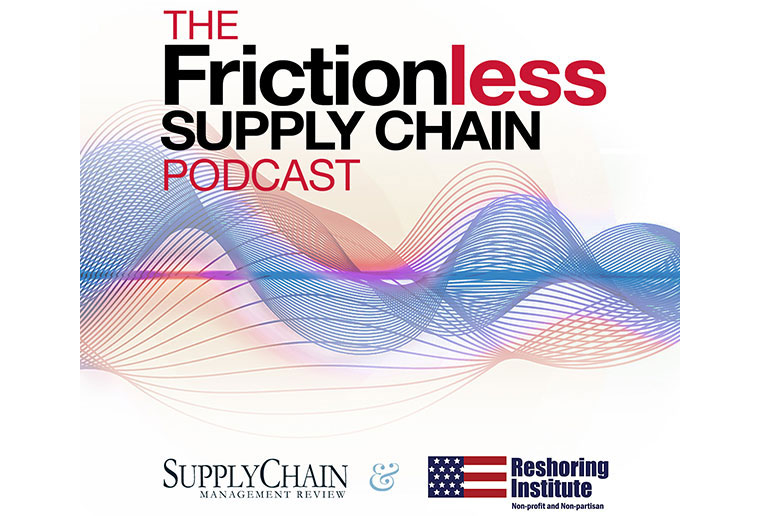Sorry, but your login has failed. Please recheck your login information and resubmit. If your subscription has expired, renew here.
September-October 2018
If it’s September, it must be time for Gartner’sTop 25 supply chains, the lead article in this issue of Supply Chain Management Review. As I was reading this year’s contribution from Gartner, I was struck by the number of the Top 25 that have launched NextGen Supply Chain initiatives, using Big Data, artificial intelligence (AI), robotic process automation (RPA), machine learning and the like to digitize their supply chains. It made me wonder: Is the rest of the pack falling behind or are they ready to follow the leaders? Browse this issue archive.Need Help? Contact customer service 847-559-7581 More options
Efficient order fulfillment is a key factor in maintaining strong relationships with customers, whether or not they are strategic partners. Yet many organizations struggle with getting this right, as they rely heavily on manual processes with significant data entry.
Manually processing orders can lead to significant disruptions caused by order input errors, a lack of integration between the order database and other internal systems, and a lack of visibility into the end-to-end process of creating, filling and delivering orders.
Sales order automation offers the potential for eliminating many of these errors and interruptions. This in turn can provide quantifiable benefits to the organization. When adopting sales order automation, APQC recommends automation specifically for processing sales orders, not solely adopting an electronic data interchange (EDI) for sales orders or an enterprise resource planning (ERP) system for inventory control.
Both internally developed systems and those purchased from an external vendor offer benefits over organizations relying on manual processes. APQC recently conducted research on this topic in partnership with Esker, a document processing automation solution provider.
The goal of the research was to identify how different sales order automation practices affect performance on key measures. For the supply chain, automating sales order processing can lead to benefits with regard to order cycle time and perfect order performance.

This complete article is available to subscribers only.
Log in now for full access or start your PLUS+ subscription for instant access.
SC
MR
Sorry, but your login has failed. Please recheck your login information and resubmit. If your subscription has expired, renew here.
September-October 2018
If it’s September, it must be time for Gartner’sTop 25 supply chains, the lead article in this issue of Supply Chain Management Review. As I was reading this year’s contribution from Gartner, I was struck by the… Browse this issue archive. Access your online digital edition. Download a PDF file of the September-October 2018 issue.Efficient order fulfillment is a key factor in maintaining strong relationships with customers, whether or not they are strategic partners. Yet many organizations struggle with getting this right, as they rely heavily on manual processes with significant data entry.
Manually processing orders can lead to significant disruptions caused by order input errors, a lack of integration between the order database and other internal systems, and a lack of visibility into the end-to-end process of creating, filling and delivering orders.
Sales order automation offers the potential for eliminating many of these errors and interruptions. This in turn can provide quantifiable benefits to the organization. When adopting sales order automation, APQC recommends automation specifically for processing sales orders, not solely adopting an electronic data interchange (EDI) for sales orders or an enterprise resource planning (ERP) system for inventory control.
Both internally developed systems and those purchased from an external vendor offer benefits over organizations relying on manual processes. APQC recently conducted research on this topic in partnership with Esker, a document processing automation solution provider.
The goal of the research was to identify how different sales order automation practices affect performance on key measures. For the supply chain, automating sales order processing can lead to benefits with regard to order cycle time and perfect order performance.
SC
MR


More Automation
- Six Factors to Consider Before Automating Warehouses
- From Whiteboard to Warehouse: Writing an Effective Warehouse Automation RFP
- 2023 Warehouse/DC Operations Survey: Automating while upping performance
- Fast Tracking ROI: Agile Logistics through Automation, AI, and Optimization
- Generative AI, Robotics and Automation: Supply Chain Friends or Foes?
- Why Supply Chain Leaders Should Care About B2B Customer Service Automation
- More Automation
Latest Podcast

 Explore
Explore
Topics
Software & Technology News
- Tips for CIOs to overcome technology talent acquisition troubles
- Game on: Rethinking change management for the digital era
- Predicting stockouts: Enhancing FMCG resilience through data-driven insights
- Top Performers Investing in, Benefitting from AI
- Electronics Supply Chain Seeks Balance in 2024
- CPOs Pivot AI Focus from What’s Possible to Implementation
- More Software & Technology
Latest Software & Technology Resources

Subscribe

Supply Chain Management Review delivers the best industry content.

Editors’ Picks





